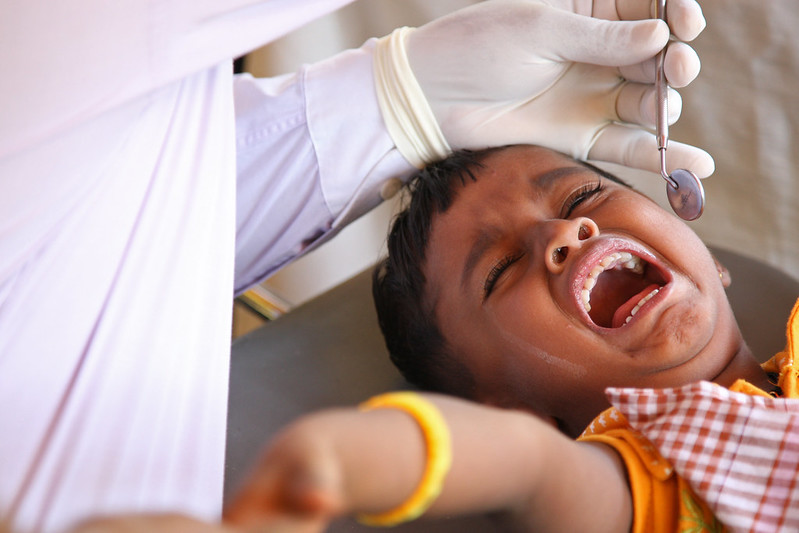As the UK emerges from the final throes of the pandemic, our dental care system remains locked in crisis. Over the course of successive lockdowns and widespread sectoral instability, dentistry has faced the threefold challenge of overstressed waiting lists, millions of missed appointments, and the departure of thousands of NHS dentists who are fleeing the health service in droves.
Whilst the gravest days of the pandemic seem to be – mercifully – behind us, the long-term consequences of the dental crisis may be just warming up. This bodes well for no one, yet I fear that the worst effects of this issue could be felt by some of the most vulnerable in society: children.
Today, the average child is far less likely to regularly visit the dentist than before the first lockdown – with the number of check-ups amongst the young falling by roughly 50% during the pandemic. According to the health service, only 5.1m children were seen by an NHS dentist over the whole of 2021, amounting to roughly 42.5% of the child population.
Whilst some of the remaining 57.5% may have received care from private clinics, many more likely will not have had contact with the dentist at all. Sadly, many children will pay dearly for this societal oversight in later life – in the form of poor oral health, time off school or work for medical treatment, related physical discomfort and stress, and the general feeling of anxiety that accompanies all of this.
To start addressing this, we must first ask: ‘what is driving this emergency in dentistry?’ Harder-to-access services and tight infection control procedures during the pandemic are part of the answer here – an unfortunate side effect of measures designed to protect the population from the more immediate threat of Covid-19.
These factors have produced what might be dubbed a ‘great slow-down’ in dentistry, a phenomenon whose effect has been sector-wide. Since April 2020, the British Dentistry Association estimates there have been close to 40 million fewer dentist appointments than normal.
Clearly, for millions of families, a trip to the dentist has become a luxury of time and planning that few can afford. Under the current system this decision is understandable, yet unfortunately the costs these families avoid by skipping check-ups will likely come back to them in unexpected ways.
Last year, a study by Public Health England found that, in 2018-2019, there were no less than 37,406 hospital procedures for the extraction of carious teeth in children aged 0 to 19 years old. For context, this means around 102 children a day – some just a year old – having to have teeth removed in hospital under anaesthetic.
For many this will be their first ever experience of receiving dental care – a terrifying and stressful première fois unlikely to inspire a lifetime of habits.
The great slow-down can leave families out-of-pocket in other ways too. Laura Donnelly reported in The Telegraph recently that over 2,000 dentists have stopped working for the health service over the last two years, amounting to about 1 in 10 of all NHS dentists.
This exodus of talent has put great strain on public options for oral healthcare, forcing many families to turn to expensive private alternatives to meet their needs. Last year, the watchdog Healthwatch England warned that many NHS patients were being asked to pay for private appointments to get treatment; whilst others faced waits of up to two-years just to be seen. This situation is clearly unsustainable.
Over the last few years, our society has had to navigate through an unprecedented public health crisis with resolve, discipline, and careful planning. To avoid the next one – precipitated by the gradual degradation of our children’s teeth – the same virtues will be needed.
On the home front, parents must be encouraged to regularly take their kids to the dentist – despite the costs in terms of time and planning required whilst the great slow-down remains in full effect. This cultural reinforcement of good oral health practices could be a vital part of the puzzle, just as the collective emphasis on mask-wearing, social distancing and regular self-testing were useful tools in the country`s Covid strategy.
Even promoting the small, simple act of chewing sugar-free gum – which a recent King`s College London study found can significantly reduce the quantity of plaque in the oral cavity – could play a part in a broader strategy to prevent the current problem from spiralling out of control.
On the policy side, immediate support is needed from Government to get dentistry back on its feet. Their first priority should be to lift some of the considerable load currently sitting on dentists’ shoulders, which is driving up waiting times and driving out talent from the public sector into the arms of more lucrative – and inaccessible – providers.
Mercifully, children were spared the worst of Covid due to a naturally stronger immune response to the virus. In the slowly-brewing dental crisis, no such protection exists. We must therefore act fast before the great slow-down in British dentistry becomes the great full-stop.

